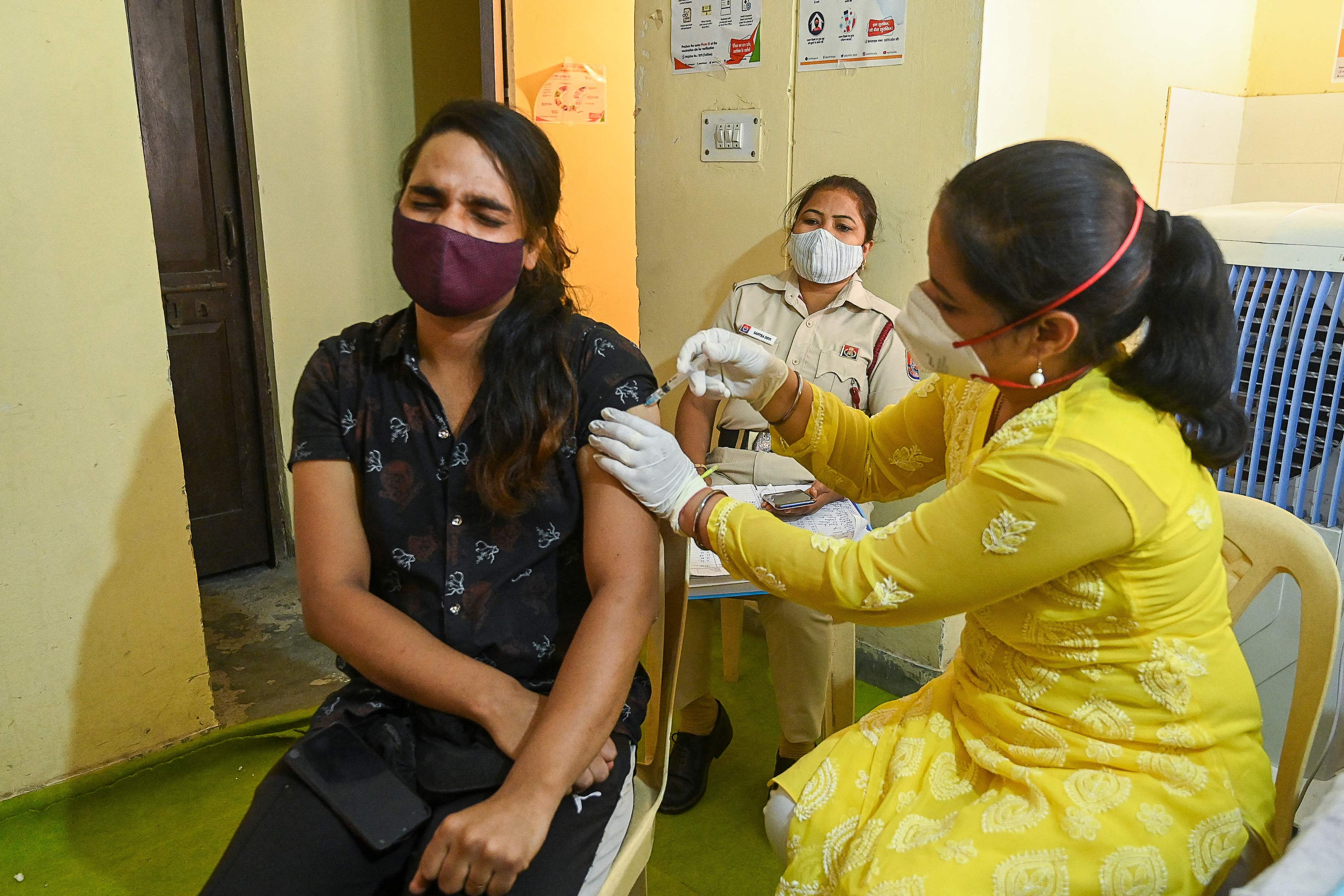Delta Plus: India elevates new mutant version of Covid to ‘variant of concern’
So far, India has recorded 40 cases of Delta Plus variant of Covid-19

Your support helps us to tell the story
From reproductive rights to climate change to Big Tech, The Independent is on the ground when the story is developing. Whether it's investigating the financials of Elon Musk's pro-Trump PAC or producing our latest documentary, 'The A Word', which shines a light on the American women fighting for reproductive rights, we know how important it is to parse out the facts from the messaging.
At such a critical moment in US history, we need reporters on the ground. Your donation allows us to keep sending journalists to speak to both sides of the story.
The Independent is trusted by Americans across the entire political spectrum. And unlike many other quality news outlets, we choose not to lock Americans out of our reporting and analysis with paywalls. We believe quality journalism should be available to everyone, paid for by those who can afford it.
Your support makes all the difference.The Indian government on Tuesday classified Delta Plus, the new mutant version of Delta variant of Covid-19, as a variant of concern.
On Wednesday, the government said that 40 cases of the Delta Plus variant had been observed in the three states of Maharashtra, Kerala and Madhya Pradesh.
India’s health ministry said that the states were alerted about the Delta plus variant on the basis of recent findings of the INSACOG - a consortium of 28 government laboratories across India tasked with the genome sequencing of Covid-19.
The government said the Delta plus variant has characteristics such as “increased transmissibility, stronger binding to receptors of lung cells, and potential reduction in monoclonal antibody response.”
The ministry said that the Union Health Secretary has communicated to these three states this variant has been found in genome sequenced samples from “Ratnagiri and Jalgaon districts of Maharashtra; Palakkad and Pathanamthitta districts of Kerala; and Bhopal and Shivpuri districts of Madhya Pradesh.”
In the UK, Public Health England confirmed it had detected 169 cases of the Delta plus strain.
Delta plus is a sub-lineage of the Delta variant, which was first detected in India. Early data shows that Delta plus variant, also referred to as “Nepal variant” as it was first discovered in the Himalayan country, allows the coronavirus to better resist antibody therapy treatments. This is because it includes the K417N mutation - first found in the Beta variant that emerged in South Africa.
India’s health ministry has advised the three states that the public health response measures, “while broadly remaining the same as have been implemented by them earlier, have to become more focused and effective.”
It also said the Chief Secretaries of the three states have been advised to take up “immediate containment measures in the districts and clusters (as identified by INSACOG) including preventing crowds and intermingling of people, widespread testing, prompt tracing as well as vaccine coverage on a priority basis.”
Health experts are worried that Delta Plus could trigger another wave of coronavirus infections in India.
"The mutation itself may not lead to a third wave in India - that also depends on Covid-appropriate behaviour, but it could be one of the reasons," said Tarun Bhatnagar, a scientist with the state-run Indian Council for Medical Research.
Meanwhile Dr Arvinder Singh Soin of Medanta Hospital in Gurugram, India, tweeted: “Delta Plus - A variant of concern. More transmissible, could even escape vaccines. We will continue to learn more about it. For now, remember that new variant or old, Covid-appropriate behaviour stays the same.”
Additional reporting by agencies
Join our commenting forum
Join thought-provoking conversations, follow other Independent readers and see their replies
Comments